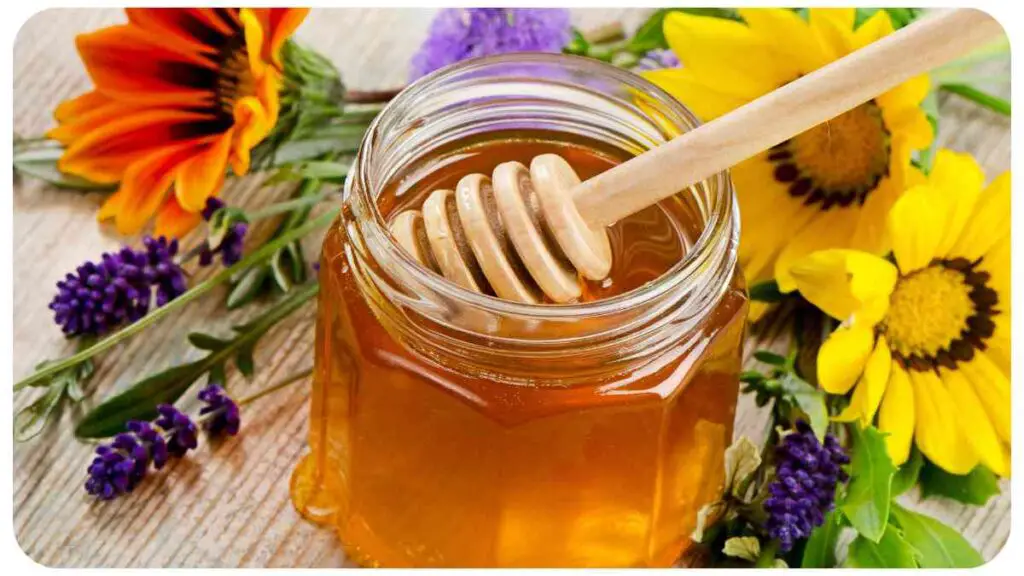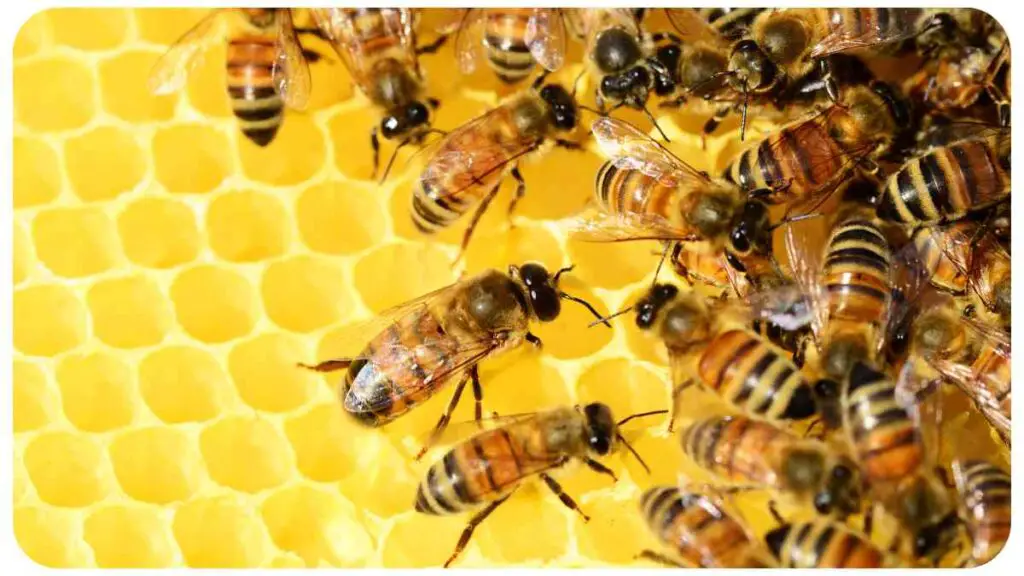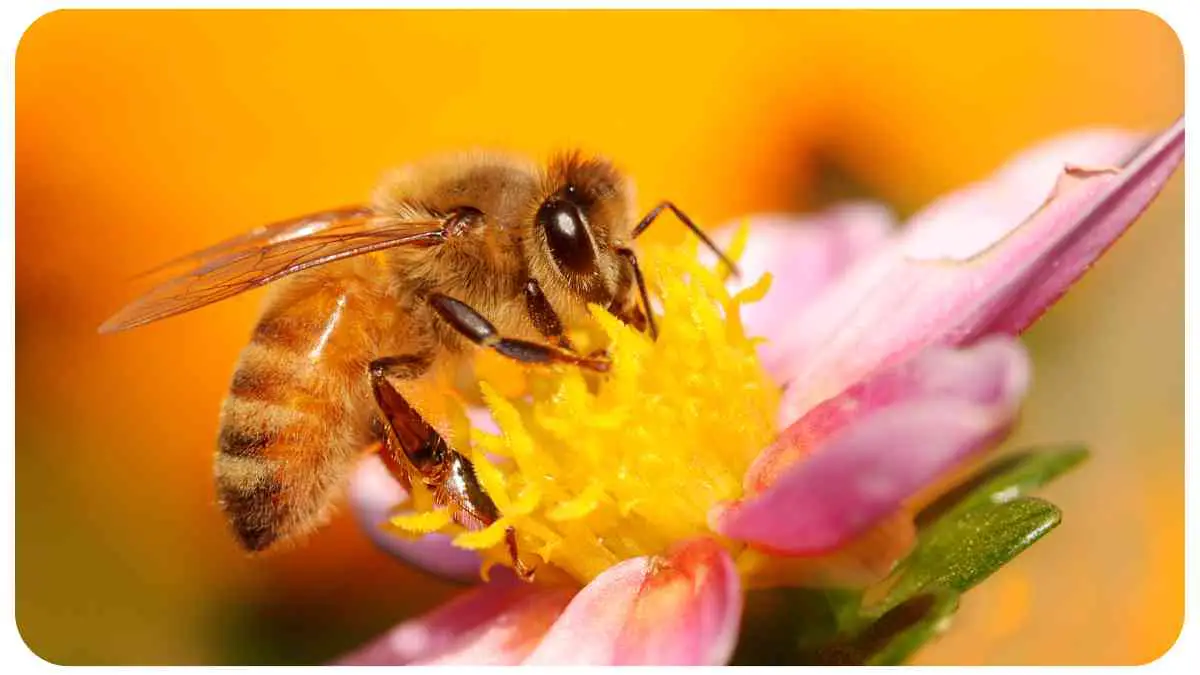Welcome to the debate surrounding the question of whether honey is vegan. In this article, we will explore the arguments, examine various perspectives, and provide insights to help you form your own opinion on this contentious topic.
As an experienced content writer with a deep understanding of subjects like veganism, I will present you with a well-researched and engaging discussion on the matter.
| Key Points |
|---|
| The debate on whether honey is vegan is complex and multifaceted |
| Vegans who avoid honey cite ethical concerns and environmental impact |
| Honey alternatives such as maple syrup and agave nectar are viable options |
| Responsible and sustainable beekeeping practices can be considered by some vegans |
| Vegan certifications provide guidance for honey-related choices |
| Expert opinions and notable influencers have varying perspectives |
| Further research and informed discussions can help shape your own stance |
2. The Vegan Philosophy: Understanding the Key Principles
Before diving into the honey debate, it’s essential to grasp the basic tenets of veganism. Vegans embrace a lifestyle that seeks to minimize the exploitation and cruelty towards animals. This philosophy extends beyond dietary choices and encompasses other aspects of life, such as clothing, cosmetics, and entertainment.
Understanding vegan nutrition is key to making informed dietary choices. Decoding Vegan Nutrition provides a comprehensive guide that explores the nutritional aspects of a vegan lifestyle, including the debate surrounding the consumption of honey.
3. Is Honey Vegan? Examining the Arguments
In this section, we will delve into the various arguments surrounding honey’s vegan status. By evaluating ethical concerns, environmental impacts, and health considerations, we aim to shed light on this complex issue.
3.1. Defining Veganism
To determine whether honey is vegan, we must first define what being vegan entails. Vegans abstain from consuming or using animal-derived products or by-products. They focus on promoting empathy, sustainability, and ethical treatment of animals.
3.2. Ethical Concerns: Bee Exploitation
One of the central arguments against honey’s vegan classification highlights the exploitation of bees in the honey production process. Beekeepers often use methods that separate bees from their honey, potentially harming or impairing their natural behaviors. Unethical practices may involve artificial insemination and wing clipping, raising concerns among strict vegans.
3.3. Environmental Impact of Honey Production
The environmental impact of honey production is another aspect worth considering in the debate. Commercial beekeeping practices may disrupt local ecosystems, contribute to the decline of pollinators, and influence biodiversity. Some vegans argue that supporting honey production undermines their commitment to environmental sustainability.
Exploring the benefits of plant-based diets is crucial to understanding their impact on health. Discover why plant-based diets are considered the key to longevity and good health, and how this perspective can influence the debate on honey’s vegan classification.
3.4. Health Considerations: Nutritional Value of Honey
From a nutritional standpoint, honey contains traces of vitamins, minerals, and antioxidants. However, it is primarily composed of sugars, making it an unhealthy option when consumed excessively. Vegans who prioritize their health often opt for alternative sweeteners with lesser environmental impact, such as maple syrup or agave nectar.
In this table, let’s compare the nutritional profiles of honey, maple syrup, and agave nectar:
| Nutrient | Honey (100g) | Maple Syrup (100g) | Agave Nectar (100g) |
| Calories | 304 | 260 | 310 |
| Carbohydrates | 82g | 67g | 76g |
| Fiber | 0.2g | 0.0g | 0.2g |
| Calcium | 6mg | 66mg | 2mg |
| Iron | 0.4mg | 0.2mg | 0.2mg |
| Vitamin C | 0.5mg | 0.0mg | 0.0mg |
| Magnesium | 2mg | 42mg | 6mg |
| Potassium | 52mg | – | 10mg |
| Zinc | 0.2mg | 0.2mg | 0.1mg |
As you can see, honey has higher calorie content and carbohydrate levels compared to maple syrup and agave nectar. However, maple syrup contains higher amounts of several essential minerals, including calcium and magnesium.
Now, let’s explore the different perspectives surrounding
4. Different Perspectives on Honey and Veganism

4.1. Vegans Avoiding Honey
Many vegans choose to avoid honey due to the ethical concerns and environmental impact associated with its production. These vegans believe in extending the principles of veganism to all aspects of their lives, including the avoidance of animal exploitation, making honey an exclusion.
The impact of dietary choices extends beyond personal health. Delve into the surprising environmental consequences of various dietary choices, including the production of honey, in The Environmental Impact of a Vegan Diet: You’ll Be Shocked.
4.1.1. Replacing Honey in Vegan Diets
For vegans who abstain from consuming honey, there are numerous substitutes available. These alternatives can vary depending on the intended use, such as adding sweetness to recipes or as a spread. Some popular honey replacements include:
- Maple Syrup
- Agave Nectar
- Brown Rice Syrup
- Molasses
These substitutes offer similar flavors and sweetness while adhering to vegan principles.
4.1.2. Honey Alternatives
In addition to natural sweeteners, the market also offers a range of honey alternatives created specifically for vegan consumers. These alternatives closely mimic the taste and texture of honey while being entirely plant-based. Some common honey alternatives include:
| Brand | Description |
| Bee Free Honee | Made from apples and cane sugar, providing a taste similar to honey |
| Wholesome! | Offers an organic, fair trade, and vegan-friendly sweetener option |
| Nature’s Charm | A vegan-friendly coconut blossom syrup that resembles honey |
These honey alternatives provide the desired sweetness without compromising ethical beliefs.
4.2. Vegans Accepting Honey
On the other side of the spectrum, some vegans don’t view honey as incompatible with their lifestyle. They argue that small-scale, sustainable beekeeping methods can be aligned with vegan practices. Such beekeepers prioritize the well-being of bees, allowing them to keep their honey and ensuring their natural behaviors are undisturbed.
These vegans argue that supporting responsible beekeepers who prioritize bee welfare helps raise awareness about sustainable practices while still enjoying the health benefits and versatility of honey.
5. Expert Opinions on Honey and Veganism

To gain further insight into the honey and veganism debate, let’s explore the opinions of experts and influencers within the vegan community.
5.1. Vegan Certifications and Standards
Various organizations provide vegan certifications and standards to help consumers identify products that align with vegan principles.
These certifications often include guidelines on honey and address the concerns of vegans who wish to avoid it. Familiarizing yourself with these certifications can aid you in making informed choices and supporting companies that share your values.
Understanding the nuances between vegan and plant-based lifestyles can shape one’s perspective on ethical eating. Vegan vs. Plant-Based: Understanding the Difference offers insights into these distinctions, which are particularly relevant when discussing the vegan status of honey.
5.2. Notable Vegan Influencers and Their Stances
Within the vegan community, there are diverse opinions regarding honey. Influential figures, such as nutritionists and vegan advocates, may have different perspectives based on their individual experiences and knowledge. It’s worthwhile to explore their viewpoints and engage in informed discussions to form a well-rounded understanding.
Here is a table summarizing the key opinions on honey and veganism:
| Perspective | Arguments |
| Vegans Avoiding Honey | – Ethical concerns of bee exploitation |
| – Negative environmental impact of honey production | |
| – Nutritional considerations and alternatives | |
| Vegans Accepting Honey | – Supporting responsible and sustainable beekeeping practices |
| – Bee welfare as a priority | |
| Expert Opinions | – Vegan certifications and standards addressing honey concerns |
| – Diverse views among notable vegan influencers and experts |
6. Conclusion
In conclusion, the debate surrounding whether honey is vegan is complex, with differing opinions within the vegan community and expert circles. The decision to include or exclude honey from a vegan lifestyle ultimately boils down to personal beliefs, ethical considerations, and environmental priorities.
Whether you choose to avoid honey altogether or support responsible beekeeping practices, there are viable alternatives and honey-like products available to cater to various preferences. By being aware of vegan certifications, engaging in discussions, and understanding different perspectives, you can make well-informed choices that align with your values.
Remember, as you navigate the intersection of veganism and honey, it’s essential to maintain respect for varying viewpoints and foster constructive dialogue that encourages education and growth within the vegan community.
Being prepared to handle social situations can make a vegan’s journey more enjoyable. Dealing with Social Situations as a Vegan: Practical Tips provides guidance on effectively communicating one’s choices, including discussing the vegan status of honey, and navigating social settings with grace
Further Reading
For more information about the debate on honey’s vegan status, consider exploring the following resources:
Is Honey Vegan? – MamaSezz
This article on MamaSezz provides a comprehensive discussion on the topic, addressing ethical concerns, environmental impact, and alternative options to incorporate into a vegan diet.
Honey: Why isn’t honey vegan and what can we use instead? – Vegan Food & Living
Vegan Food & Living explores the reasons behind honey not being considered vegan, offering alternatives while considering health and ethical aspects.
Is Honey Vegan? – Treehugger
Treehugger delves into the debate on whether honey aligns with vegan values and environmental sustainability. The article examines multiple perspectives and provides further insights.
FAQs
Can vegans consume honey alternatives?
Yes, vegans have a variety of alternatives to honey, such as maple syrup, agave nectar, brown rice syrup, and molasses. These alternatives offer similar flavor and sweetness without the ethical concerns associated with honey production.
What are the environmental impacts of honey production?
Commercial honey production can have adverse effects on local ecosystems, disrupt biodiversity, and contribute to the decline of pollinators. Some vegans choose to avoid honey to support environmental sustainability and preserve ecosystems.
Are all beekeeping practices unethical?
While some beekeeping methods may harm or exploit bees, sustainable and ethical beekeeping practices prioritize bee welfare and allow bees to keep their honey. Responsible beekeeping aims to minimize interference with natural behaviors and maintain a symbiotic relationship with bees.
Are vegan certifications relevant to honey?
Yes, many vegan certifications and standards address the issue of honey to assist consumers in making informed choices. By familiarizing yourself with these certifications, you can ensure the products you choose align with vegan principles.
Can supporting responsible beekeeping be considered vegan?
Some vegans argue that supporting responsible beekeeping practices, which prioritize sustainability and the well-being of bees, can be compatible with their vegan lifestyle. This perspective seeks to prioritize ethical beekeeping methods while still enjoying the health benefits and versatility of honey.

Hi! My name is Hellen James, and I’m a vegan lifestyle enthusiast. I’ve been living the vegan lifestyle for over 10 years now, and it’s been one of the best decisions I’ve ever made. The food is amazing, the community is incredible, and there’s no way I could go back after experiencing all this firsthand.


